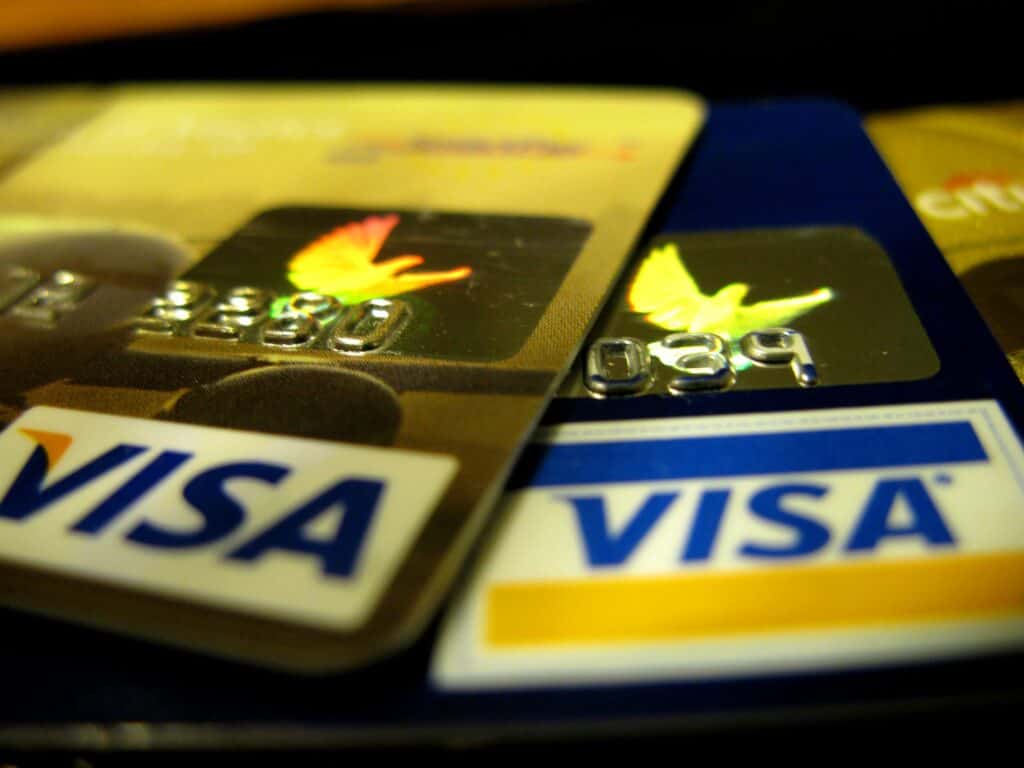The government is trying to curb abusive practices in the credit card industry with a mix of legislation and litigation. If those efforts succeed, local economies around the country will benefit as small businesses escape a trap the industry laid long ago.
Credit card processing fees have been a problem for small businesses for many years. These fees, also known as interchange fees or swipe fees, are paid by the merchant’s bank to a cardholder’s bank when a customer uses their card to make a purchase. Small businesses are especially affected by credit and debit card swipe fees that cut deep into their costs due to their small volume of sales.
In September 2024, the Department of Justice filed a lawsuit against Visa for their monopoly over the debit card market. A Senate bill with bipartisan co-sponsors, the Credit Card Competition Act (CCCA), aims to regulate Visa and Mastercard’s control over the credit card market.
New DOJ Anti-Monopoly Debit Card Lawsuit Against Visa
Visa handles more than 60% of debit transactions in the United States every year, a dominant position Visa intentionally and strategically secured. According to the DOJ, Visa’s strategy was to “partner with emerging players before they become disruptors” (see DOJ lawsuit, pages 9-10). Their alleged tactics include entering into agreements that penalized merchants who tried to find alternatives to Visa and paying potential rivals to stay out of the market.
The DOJ alleges that one way Visa engaged in anti-competitive efforts is by violating Section 1075 of the Dodd-Frank Act, known as the Durbin Amendment, which became law in 2011. The Durbin Amendment requires card issuers to offer at least two debit networks to increase competition and allow merchants to choose the network that benefits their business the most. Since the law became effective, Visa began charging merchants significant fees (a tactic known as “cliff pricing”) if they did not route transactions through Visa. Visa also made agreements with competitors to halt the development of new technologies that would allow consumers to bypass its network. For example, Visa agreed to cut fees that it charges to PayPal in exchange for Paypal routing 100% of its debit transactions through the Visa network. DOJ argues that these agreements have resulted in a lack of competitive alternatives, which puts merchants in a poor position to negotiate and causes most merchants to continue using Visa.
Credit Card “Duopoly” by Visa and Mastercard
In addition to the debit card market, the DOJ lawsuit also brought attention back to Visa’s control over the credit card market. Visa and Mastercard have a “duopoly” on the credit card market, charging swipe fees of 2% to 4% to merchants who have no choice but to accept either credit card network. In 2022, merchants paid up to $126 billion in interchange fees. Small businesses are particularly disadvantaged, as the fees make up a larger part of their operating costs and cut deeper into their profit margins compared to corporations. Merchants pass these costs onto consumers in the form of higher prices on nearly every good and service. These fees add to the financial strain experienced by low- and moderate-income communities, as the average family spends about $1,000 a year on swipe fees.
Credit Card Competition Act
The Credit Card Competition Act (CCCA), introduced by Senator Dick Durbin (D-IL) in 2023, has been proposed as a potential solution to break up the credit card duopoly by applying existing debit card requirements from the Durbin Amendment to credit cards. The bill would require banks with more than $100B in assets that issue credit cards to allow at least two networks on their credit cards for merchants to choose from, one of which must be a network other than Visa or Mastercard. With more competition from other networks, Visa and Mastercard would be incentivized to decrease their credit card fees and improve the quality of their services in order to raise demand for their networks.
The CCCA is drawing fierce opposition from the companies that would lose some of their leverage over small businesses. Visa, Mastercard and their allies in the credit card industry have campaigned against the CCCA, plastering ads in public spaces and on social media. Their main argument is that CCCA would reduce and eliminate credit card rewards programs, as banks would not have enough revenue generated from interchange fees to fund them. But the bill would in fact reduce rewards programs by less than 1/10th of a percent, as the American Economic Liberties Project (AELP) has explained. Furthermore, banks would still collect about 90% of the fee revenue they do currently if the bill became law. The roughly $16 billion CCCA would save for merchants and customers is less than 10% of the revenue generated from swipe fees – leaving plenty of profits to pay for rewards programs..
Capital One-Discover Merger Application
Capital One, in its attempt to acquire Discover, seeks to position itself as a counterweight to the Mastercard-Visa “duopoly.” However, mergers involving payment networks, such as the one proposed by the Capital One-Discover merger, will at best shift the rankings of the oligopolies in this market, and leave intact the lack of competition that allows payment networks to charge exorbitant processing fees.
The bank’s public messaging around the merger’s competitive effects also conceals a key piece of why Capital One is eager to acquire Discover. Its debit cards are exempt from that “Durbin Amendment” requirement discussed above to offer alternatives to merchants. Capital One would gain access to Discover’s exemption from caps on debit interchange fees – giving them the legal ability to raise these junk fees on businesses and consumers.
Manan Shah is a Government Affairs Associate at NCRC.
Lauren Wolters is a Government Affairs Associate at NCRC.
Photo by Frankie Leon on Flickr.



